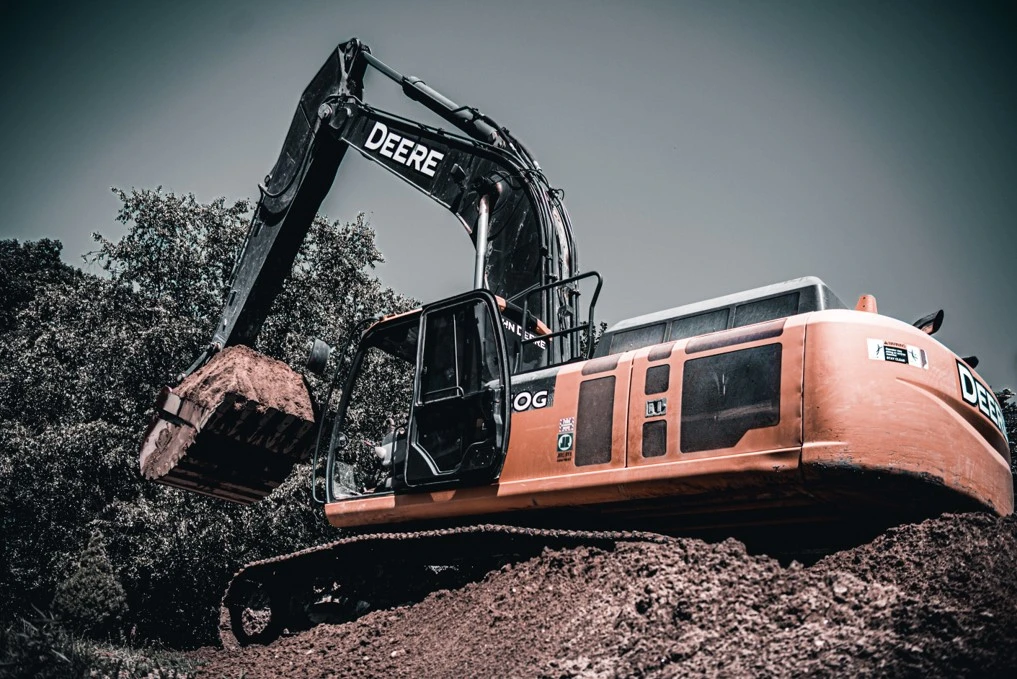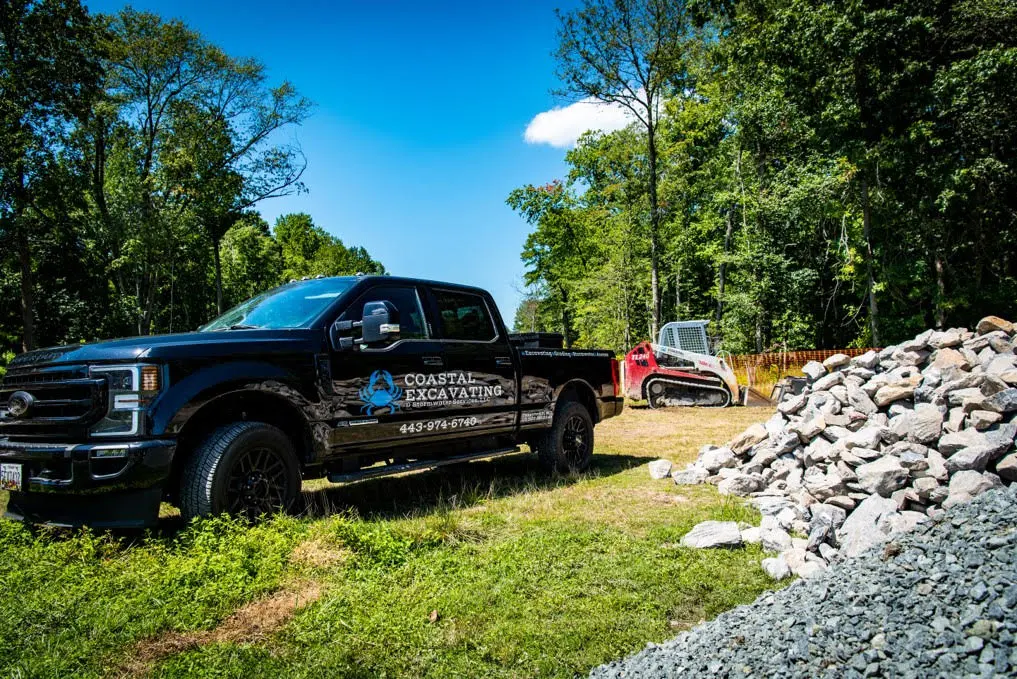EXCAVATION CONTRACTOR BLOG
Maximizing Land Use Efficiency through Effective Site Development
Posted 4/1/2023 (Updated 8/21/2023)
Why Effective Site Development is Important
For small businesses, every square foot of land matters. Whether it’s a storefront, office, or manufacturing facility, the cost of real estate can eat into a business’s profitability. That’s why it’s essential for small businesses to maximize their land use efficiency through effective site development. In this blog post, we’ll discuss what land use efficiency is, why it’s important for small businesses, and how effective site development can help.
What is Land Use Efficiency?
Land use efficiency refers to the optimal use of available land resources. It involves designing and developing a site to maximize its functionality, productivity, and profitability. This can include everything from building placement and layout to landscaping and parking. The goal is to use the land to its fullest potential while minimizing waste, inefficiency, and environmental impact.
Want to learn more about site development? Check out these posts:
Site Excavation Basics That Everyone Should Know
The Importance of Site Development Planning in Construction Projects
Coastal Excavation – A Guide to Successful Site Preparation
Why is Land Use Efficiency Important for Small Businesses?
For small businesses, land use efficiency is crucial. With limited resources and tight profit margins, every inch of land counts. Maximizing land use efficiency can help small businesses in several ways:
- Cost Savings: By using land resources efficiently, small businesses can reduce their real estate costs. This can help to increase profitability and competitiveness.
- Increased Productivity: Effective site development can help small businesses to create a more productive workspace. This can lead to increased efficiency, reduced downtime, and higher output.
- Improved Customer Experience: A well-designed site can improve the customer experience by making it easier to find and access the business. This can lead to increased foot traffic, sales, and customer loyalty.
- Environmental Benefits: Maximizing land use efficiency can also have environmental benefits. By reducing waste and optimizing energy use, small businesses can reduce their carbon footprint and contribute to a more sustainable future.

How Can Effective Site Development Maximize Land Use Efficiency?
Effective site development is the key to maximizing land use efficiency. It involves a comprehensive approach to designing and developing a site, taking into account factors such as zoning regulations, site topography, and environmental impact. Here are some ways effective site development can help small businesses to maximize their land use efficiency:
- Building Placement and Layout: The placement and layout of buildings can have a significant impact on land use efficiency. Effective site development involves designing buildings to minimize their footprint while maximizing their functionality. This can include using multi-story buildings or building upwards instead of outwards.
- Parking and Circulation: Parking and circulation are critical components of site development. By designing efficient parking layouts and traffic flow patterns, businesses can reduce congestion, improve safety, and maximize available land resources.
- Landscaping and Outdoor Spaces: Landscaping and outdoor spaces can also be used to maximize land use efficiency. By incorporating green space, businesses can reduce their environmental impact while improving the aesthetic appeal of their site. Outdoor spaces can also be used to increase productivity by providing employees with areas for breaks or meetings.
- Environmental Sustainability: Effective site development should also take into account environmental sustainability. This can include incorporating renewable energy sources, such as solar panels, and using sustainable materials in construction.
Wrapping Up
Small businesses often have limited land resources compared to larger corporations. Therefore, it is crucial for small businesses to make the most of their available land to optimize their operations and increase profitability. Effective site development involves careful planning and utilization of the available space. Small businesses must consider factors such as the layout of their facilities, parking spaces for employees and customers, and storage areas. By efficiently organizing these elements, small businesses can maximize their land use and create a productive and efficient work environment.
A well-designed site layout can also enhance the customer experience and attract more foot traffic. Small businesses need to ensure easy access and parking for customers, as convenience is a significant factor in their purchasing decisions. Additionally, an attractive and organized site can create a positive image for the business, enhancing its reputation and competitiveness.
Another aspect of site development that small businesses should focus on is sustainability. By adopting environmentally friendly practices, such as using renewable energy sources and implementing green building techniques, small businesses can not only reduce their ecological footprint but also lower operational costs. Sustainability practices can attract environmentally conscious customers and give small businesses a competitive edge.

Conclusion
Furthermore, effective site development should take into account future growth and expansion plans. Small businesses need to anticipate and plan for future changes in their operations, such as increased production capacity or a larger workforce. By allocating land resources accordingly, small businesses can avoid costly renovations or relocations in the future and ensure a smooth transition during periods of growth.
In conclusion, maximizing land use efficiency through effective site development is crucial for small businesses to remain competitive and profitable. By carefully planning their site layout, focusing on customer experience, incorporating sustainable practices, and considering future growth, small businesses can optimize their land use and create a thriving business environment.
Frequently Asked Questions (FAQs)
1. What is the process for site development permits?
The process for obtaining site development permits consists of the following steps:
- Submit a complete application form to the Site Development Division.
- The submitted documents will be reviewed by the department staff.
- The site plan and project details will be evaluated for compliance with the standard requirements.
- If everything is in order, the permit will be approved and issued.
- A fee may be required for all development services.
- Upon approval, you can proceed with the construction and site preparation.
- All excavation, grading, drainage, and improvement work must adhere to the approved plan.
- Inspections will be conducted at various stages of the project.
- Once the work is completed and meets the necessary standards, the project will be considered finished.
2. What documents are required for site development permits?
The following documents are typically required for site development permits:
- Completed application form
- Site plan
- Construction drawings
- Engineering reports
- Drainage plans
- Environmental impact assessment (if applicable)
3. Where should I submit the site development permit application?
The site development permit application should be submitted to the Site Development Division of the County Department.
4. What is a traffic impact analysis and when is it required?
A traffic impact analysis is an assessment of the potential impact of a development project on the surrounding traffic conditions. It is typically required for commercial and residential projects that are expected to generate significant traffic.
5. How long does it usually take to obtain a site development permit?
The time to obtain a site development permit can vary depending on the complexity of the project and the workload of the County Department. However, it typically takes around 4-6 weeks from the submission of a complete application to the issuance of the permit.
6. Can I request an expedited review of my site development permit application?
Yes, in some cases, an expedited review of the site development permit application may be possible.
